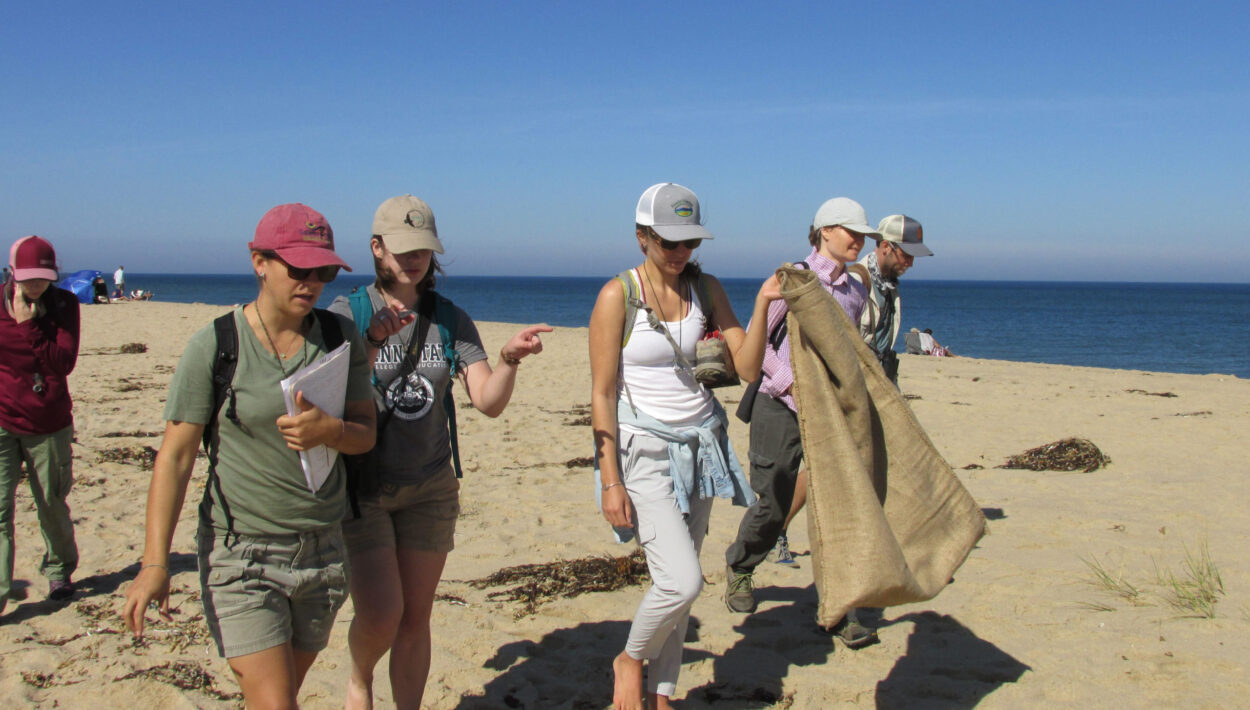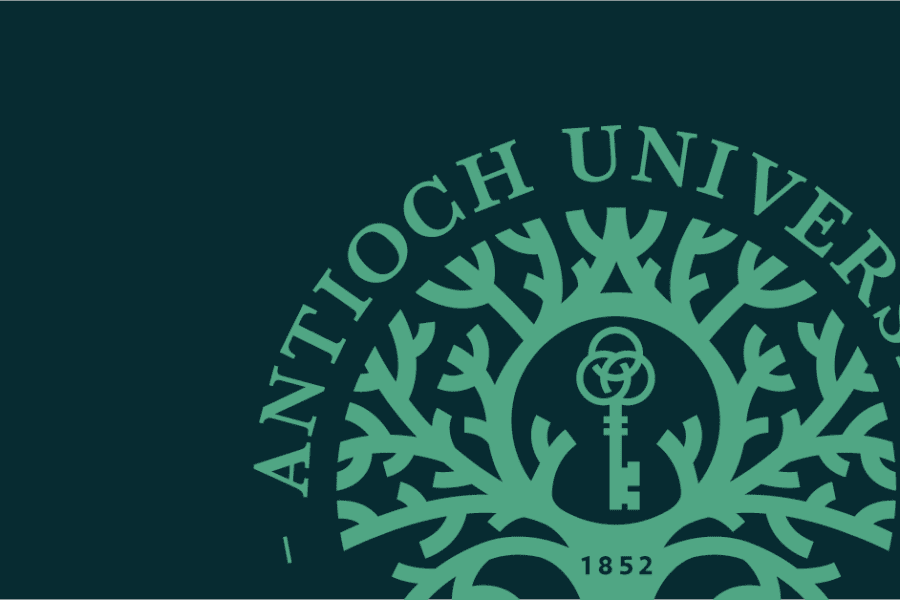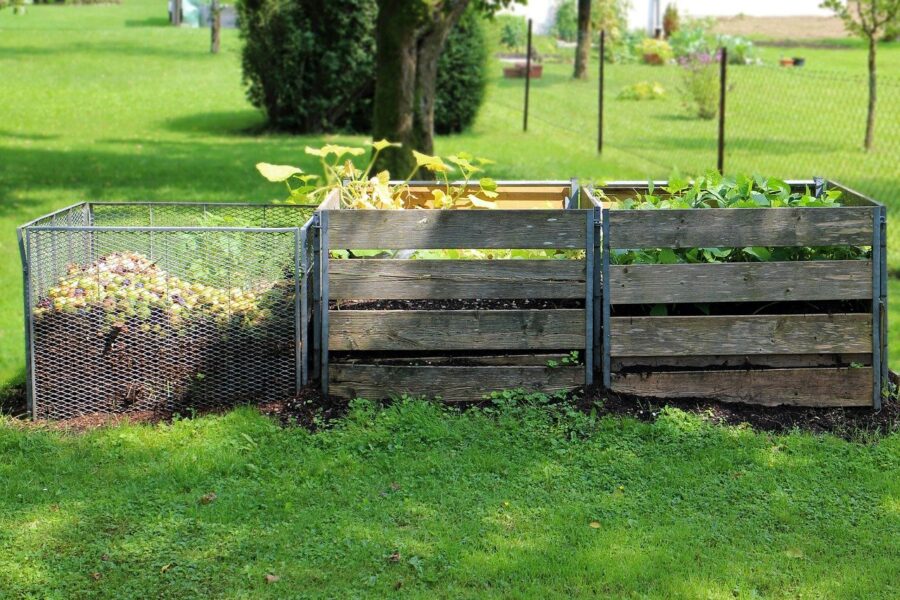 Coastal Geoecology is a field study course in the AUNE Environmental Studies Department in which students explore coastal geomorphology and ecology using Cape Cod as a model system. This course is led by Dr. Rachel Thiet, Core Faculty in the Environmental Studies & Sustainability Department and Director of the Conservation Biology Concentration, who has worked on Cape Cod extensively for almost two decades.
Coastal Geoecology is a field study course in the AUNE Environmental Studies Department in which students explore coastal geomorphology and ecology using Cape Cod as a model system. This course is led by Dr. Rachel Thiet, Core Faculty in the Environmental Studies & Sustainability Department and Director of the Conservation Biology Concentration, who has worked on Cape Cod extensively for almost two decades.
For five days, students spend all day in the field, studying and characterizing various glacial landforms and the unique coastal ecosystems that rely on their various degrees of stability and disturbance.
“Cape Cod is compelling because it’s a landform and ecoregion that is continually in flux,” Dr. Thiet says. “This dynamism is instructive for students because they’re challenged to think about and understand the effects of natural and human disturbance on geo-ecological stability and change across multiple spatial and temporal scales.”

Students get the chance to explore Cape Cod with seasoned professionals, identifying key geomorphological characteristics and examining unique ecosystems up close. A full day of the trip is spent interpreting the geological processes that shaped the Cape’s beaches, while walking along those very shorelines. Students don waterproof boots and wade into a salt marsh to examine plant and animal species unique to the system, amble through a globally-rare Atlantic White Cedar swamp, and visit regionally-threatened coastal heathlands and grasslands.
“Rachel Thiet is one of the kindest, most thoughtful, and insightful humans I know,” said alum Micki Colbeck. “It is no wonder that a week on Cape Cod studying Coastal Geoecology with Rachel at the helm was a highlight of my time at Antioch. From salt marsh restoration to oyster farming, from the glacial history and the constant effects of winds and waves, we explored the natural history and possible future of this important coastal region.”
The class works in close partnership with Cape Cod National Seashore (CCNS), part of the National Park Service, throughout the field excursion. CCNS shares jurisdiction with multiple municipalities and private landowners; thus, students are also exposed to the complexities of managing coastal ecosystems amidst multiple stakeholders and pressures. Throughout the trip, students have opportunities to talk with National Seashore biologists and managers, as well as stakeholders from multiple coastal organizations representing various standpoints on coastal management issues.
 “There’s no other class at Antioch that can combine saltmarsh exploration and sand dune trekking with an ocean-side campfire and a freshly-caught seafood meal—all in a single day,” said alum Steven Lamonde. “This course not only shines a spotlight on the exquisite natural beauty and rich culture of Cape Cod, but it also teaches students about the complex, dynamic geomorphology of coastlines around the world. For anyone interested in watching topography and bathymetry change in real-time, this is the course for you.”
“There’s no other class at Antioch that can combine saltmarsh exploration and sand dune trekking with an ocean-side campfire and a freshly-caught seafood meal—all in a single day,” said alum Steven Lamonde. “This course not only shines a spotlight on the exquisite natural beauty and rich culture of Cape Cod, but it also teaches students about the complex, dynamic geomorphology of coastlines around the world. For anyone interested in watching topography and bathymetry change in real-time, this is the course for you.”
While the field course schedule is packed, students also have considerable free time each evening to enjoy all the Cape has to offer, such as gorgeous beaches, sand dunes, salt marshes, heathlands, kettle ponds, and freshwater wetlands — many of which are globally rare or threatened ecosystems.
“I initially signed up for the Coastal Geoecology course because it was one of the more affordable field courses, and it fit with my academic scheduling,” added Lamonde. “Having grown up in eastern Massachusetts, I thought it would be fun to learn more about the ecosystems and geologic history of Cape Cod. The course turned out to be downright amazing, and I learned so much more than I thought I would.”





